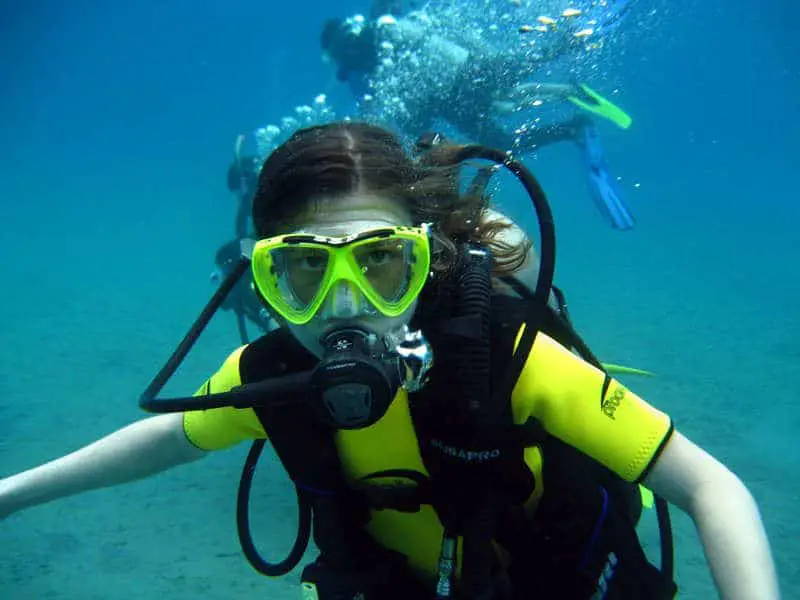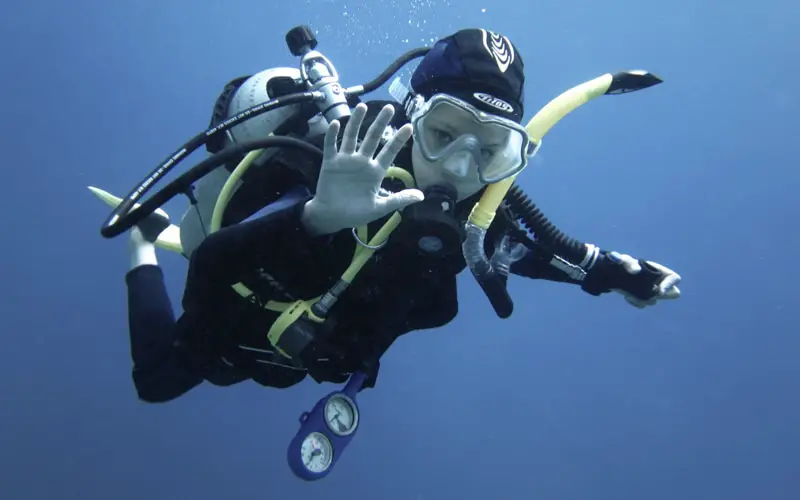Scuba diving is fun for everyone since it lets them discover a new world. Marine life, coral reefs, and the underwater world are something many people appreciate, which is why diving is so popular, especially in places like Hawaii.
For families who wish to go scuba diving, it’s a good idea to understand a few safety tips. One of the most significant is the child’s age.
Is it a good idea to get scuba diving lessons sooner rather than later?
Before getting into the excitement, it’s important to have a better understanding of how to do it – especially with children. After learning how to scuba dive, individuals can get certification to prove that they know how to safely do so. PADI and SSI are two certifying agencies that people should look into if they want to learn to scuba dive and get a certificate. If you want to learn more about PADI Certification and How long does it takes to get PADI certified check our article here.
Experiences like scuba diving are ones that most people will remember, since there’s something so exhilarating and breathtaking about being able to go on an underwater adventure. Those who get lessons earlier on in life will have much more time to explore the depths and create memories that will last a lifetime – and the skills needed to actually go scuba diving won’t leave them, either.
This is why many parents out there who enjoy this activity themselves or are just simply interested in giving it a go with their kids should certainly consider giving them a hobby that will stick with them for life.

What’s the point of getting lessons and being certified?
Diving is exciting and soothing for all ages. However, while underwater exploring this magnificent new environment, certain safety precautions must be taken.
Scuba diving has risks and hazards like the surface. The risks are modest and may be readily avoided, but people should learn about them from a specialist before exploring the sea. There’s nothing exciting about being oblivious of potential dangers or how to handle a new scenario, therefore non-certified people won’t enjoy the experience.
While this is important for both adults and children, it’s certainly worth noting that in general, kids are far less likely to understand what to do in a perilous position than a fully grown adult. In truth, children are far more susceptible to making mistakes and can find it difficult to deal with issues that could potentially arise without some form of guidance (whether it be in the form of training, or simply having an experienced adult nearby).
How early can a child get lessons?
While the age can vary from one place to another, it’s generally no less than 8 to get started with learning how to properly scuba dive. Most agencies offer courses for children of this age, although they are typically held in swimming pools and aren’t likely to give certification for diving in the sea. These can be a great way to introduce a child to scuba diving, so that when they’re a little older, they can have a head start on learning to dive in open waters.
There are a number of courses that are a little more advanced that have been designed as a step up from the beginner courses, and in most cases the minimum age for these is around 10 years old. Generally, kids can go into one of these lessons without needing any prior training, since the courses within this age range will typically cover everything anyway. Going for a more basic set of classes first is often the best idea however, since they generally serve as a good introduction.

What can a child learn from scuba diving lessons?
While it’s necessary to have lessons and certification to be able to dive, it’s often worth finding out exactly what’s on the syllabus from the courses that are available. After all, knowing what the child needs to know can make it much easier to sort among the various service providers to locate one that provides the appropriate instruction.
There are many courses that teach the basic rules, skills, and safety measures that both adults and children need to know in order to dive safely, and have the best possible time during their underwater exploration. Each course is different and may have individual requirements, as well as a variation in what they teach, but in general each should offer these 3 things as standard.
While there are a number of people who offer their expertise, it’s generally fairly easy to find the best instructor by considering factors like their experience, how long they’ve been teaching, and (as mentioned above) what knowledge they have to offer.
Although helpful, online classes aren’t essential before practical lessons to start training.
Find a good course and enroll today
In conclusion, scuba diving courses are important for people of any age, and it’s generally best to give them to children as soon as possible – particularly if they’re going to need those skills and safety lessons at some point in the near future.
